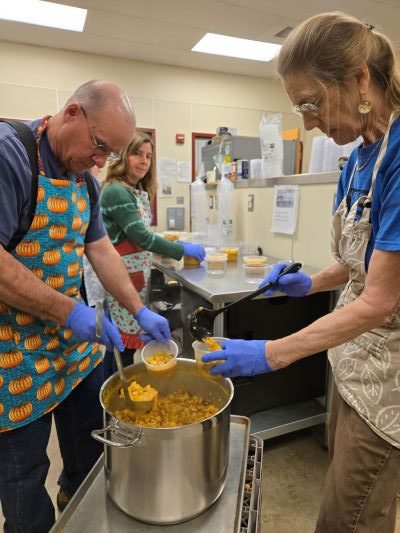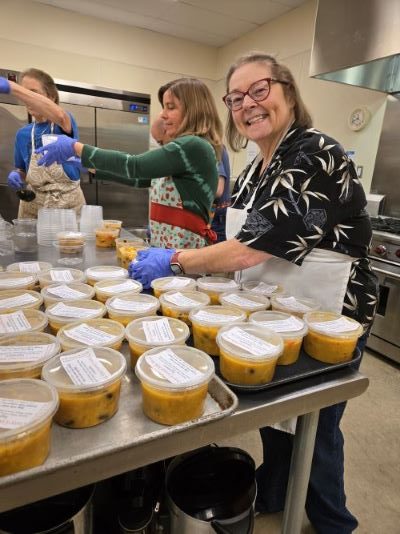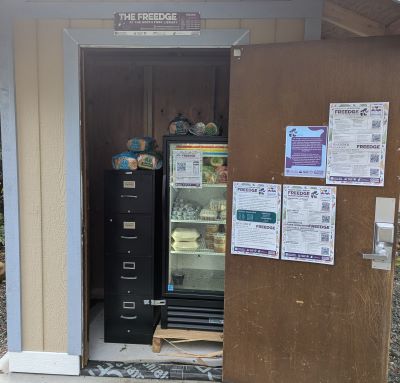One of the key contributors to this effort is NW Fruit Rescue, an organization dedicated to harvesting surplus apples and pears from local farms, abandoned orchards, and backyard trees; fruit that would otherwise fall to the ground and decompose. By collecting this excess fruit, it is prevented from going to waste by distributing the “table-grade” fruit to hunger relief agencies and the “number 2 grade” fruit is sent to a local cidery where it is pressed into juice for hard cider. But NW Fruit Rescue doesn’t stop there! This ambitious group wanted to do more to support the community, so they began preparing meals for the Freedge at the North Fork Library (with help from their volunteers!), ensuring that these nourishing meals are available to those in need every week.
What makes this initiative even more special is their use of surplus vegetables, generously donated by the Puget Sound Food Hub (Cloud Mountain Farm provides the infrastructure for processing). Surplus vegetables, which might otherwise have gone to waste, are creatively incorporated into the meals. For instance, cauliflower stems, which are trimmed off when preparing florets, are diced and added to the stew, enhancing both its flavor and nutritional value. Through this effort, NW Fruit Rescue is not only helping to divert edible food from landfills but also contributing to a more sustainable and resilient community. The meals they prepare offer both nourishment and an example of how repurposing surplus food can make a big difference!
This initiative wouldn’t be possible without the support of several other key partners working together to make it all happen. Such as The East Regional Resource Center; they play a crucial role by providing NW Fruit Rescue with access to their commercial kitchen where the meals are prepared. The Foothills Food Bank provides refrigerators for properly cooling and storing meals as well as staff that transport the soups and stews to the Freedge. Sustainable Connections contributes by tracking data to measure the program’s impact and offering ongoing support. The staff at the North Fork Community Library are essential in managing the Freedge itself. Additionally, WSU SNAP-Ed helped connect some of the organizations that brought this initiative to life. These partnerships demonstrate the value of collaboration, with each organization contributing its resources and expertise to help reduce food waste and support the local community.

NW Fruit Rescue volunteers filling containers with stew.

NW Fruit Rescue volunteers labeling containers of stew.

Stew inside the North Fork Freedge.
